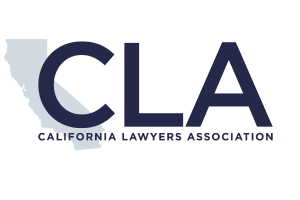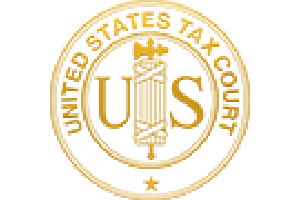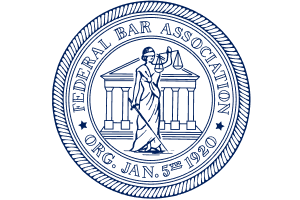Getting Results
Trust Fund Taxes
If income, social security, and Medicare taxes are not withheld and/or deposits of withheld funds are not submitted to the IRS, responsible persons may be assessed penalties. Penalties include the unpaid trust fund taxes. The IRS may charge any persons determined to be responsible for payment of trust fund taxes if they acted willfully.
Essentially the government must first prove two main points: “responsible person” and “willful” to pursue an individual for these payroll taxes. These two terms have specific legal definitions but are often difficult to apply to everyday business environment.
RESPONSIBLE PERSON can be an individual who is an officer or employee of a corporation, a partner or employee of a partnership, an accountant, a volunteer director/trustee, or an employee of a sole proprietorship.
WILLFULLY means acting or not acting voluntarily, consciously, and intentionally. A responsible person may be deemed to be acting willfully if he intentionally decides not to deposit payroll taxes as directed by the owner of the company.
Resolving Trust Fund Tax Problems with the IRS:
Trust fund tax problems can pose severe financial and legal risks for business owners, officers, and other responsible individuals. When payroll taxes—such as income, Social Security, and Medicare taxes—are not withheld or deposited with the Internal Revenue Service (IRS), the IRS may impose the Trust Fund Recovery Penalty (TFRP), holding individuals personally liable for the unpaid amounts. At Tax Lawyers Group APC, our Los Angeles-based tax attorneys specialize in resolving trust fund tax issues, defending against TFRP assessments, and protecting your personal and business assets.
What Are Trust Fund Taxes?
Trust fund taxes refer to the portion of payroll taxes withheld from employees’ wages, including:
- Federal Income Taxes: Withheld based on employees’ W-4 forms.
- Social Security Taxes: Employee contributions to the Social Security program (6.2% of wages, up to the annual wage base).
- Medicare Taxes: Employee contributions to Medicare (1.45% of wages, with an additional 0.9% for high earners).
Employers are required to withhold these taxes from employee paychecks, hold them in trust, and deposit them with the IRS on a regular schedule (e.g., monthly or semi-weekly) using Form 941. The “trust fund” portion represents the employees’ money, which the employer holds in trust until remitted to the IRS. If these taxes are not withheld or deposited, the IRS can pursue not only the business but also individuals deemed responsible for the failure, imposing the TFRP.
The Trust Fund Recovery Penalty (TFRP)
The TFRP is a personal liability penalty that allows the IRS to collect unpaid trust fund taxes directly from individuals involved in the business. The penalty equals 100% of the unpaid trust fund taxes, plus interest, and can be assessed against anyone the IRS determines to be a “responsible person” who acted “willfully” in failing to collect, account for, or pay the taxes. Key consequences include:
- Personal Liability: The IRS can pursue your personal assets, including bank accounts, wages, and property, to satisfy the penalty.
- Credit Damage: TFRP assessments and related tax liens can harm your credit rating, limiting your ability to secure loans or leases.
- Aggressive Collection Actions: The IRS may use wage garnishments, bank levies, or property seizures to collect the penalty.
- Joint and Several Liability: Multiple responsible persons can be held liable for the same tax debt, allowing the IRS to collect from any or all of them.
Defending against a TFRP assessment requires a thorough understanding of IRS criteria and a strategic defense to challenge the “responsible person” or “willful” determinations. Tax Lawyers Group APC has extensive experience in these cases, helping clients avoid or minimize personal liability.
IRS Criteria for TFRP Liability
To impose the TFRP, the IRS must establish two key elements: responsible person status and willful conduct. These terms have specific legal definitions but are often challenging to apply in real-world business scenarios.
Responsible Person
A “responsible person” is anyone with the authority and duty to ensure trust fund taxes are withheld, accounted for, and paid to the IRS. This can include:
- Corporate Officers or Employees: CEOs, CFOs, treasurers, or other executives with control over financial decisions.
- Partners or Employees of a Partnership: Individuals with authority to manage payroll or tax payments.
- Sole Proprietors or Employees: Owners or staff responsible for tax compliance in a sole proprietorship.
- Accountants or Bookkeepers: Third-party professionals with authority to handle payroll taxes.
- Volunteer Directors or Trustees: Non-profit board members with financial oversight responsibilities.
The IRS considers factors such as:
- Authority to sign checks or authorize payments.
- Control over the company’s financial affairs, including payroll and tax deposits.
- Involvement in hiring/firing decisions or managing day-to-day operations.
- Knowledge of the company’s tax obligations.
Multiple individuals can be deemed responsible, and the IRS may pursue any or all of them. Proving you lacked authority or were not involved in tax-related decisions is critical to avoiding liability.
Willful Conduct
“Willful” conduct means acting (or failing to act) voluntarily, consciously, and intentionally with respect to the trust fund taxes. Examples include:
- Intentional Non-Payment: Choosing to pay other business expenses (e.g., vendors, rent) instead of trust fund taxes, knowing the taxes were due.
- Reckless Disregard: Ignoring clear evidence of unpaid taxes, such as repeated IRS notices, without investigating or correcting the issue.
- Following Orders: A responsible person who intentionally does not deposit taxes as directed by a superior (e.g., a business owner) may still be deemed willful, as following unlawful orders does not absolve liability.
Willfulness is a high bar, and the IRS must show that you were aware (or should have been aware) of the tax delinquency and made a deliberate choice not to comply. Lack of funds alone is not a defense, but certain circumstances, such as reliance on a trusted professional or lack of actual knowledge, may weaken the IRS’s case.
Defending Against TFRP Assessments
Challenging a TFRP assessment requires a strategic defense tailored to the specific facts of your case. At Tax Lawyers Group APC, we employ a comprehensive approach to protect you from personal liability:
- Case Evaluation:
- We conduct a thorough review of your role in the business, financial records, and IRS correspondence to assess whether you meet the “responsible person” or “willful” criteria.
- We gather evidence, such as corporate bylaws, bank records, or communications, to demonstrate your lack of authority or knowledge.
- Challenging Responsibility:
- We argue that you were not a responsible person by showing you had no control over tax payments or financial decisions. For example, we may prove that another individual (e.g., a CFO or accountant) exclusively handled payroll taxes.
- We highlight any delegation of duties or reliance on professionals to shift liability away from you.
- Disputing Willfulness:
- We demonstrate that your actions were not willful, such as by showing you were unaware of the tax delinquency or relied on a trusted advisor who failed to comply.
- We present mitigating factors, such as financial distress, illness, or external pressures, to weaken the IRS’s claim of intentional conduct.
- Negotiation and Appeals:
- We represent you during IRS interviews (e.g., Form 4180 interviews) to ensure your statements are accurate and do not inadvertently admit liability.
- If the IRS proposes a TFRP assessment, we file a protest and pursue appeals through the IRS Office of Appeals or, if necessary, the U.S. Tax Court.
- We negotiate alternative resolutions, such as partial abatements or settlements, to reduce your liability.
- Tax Debt Resolution:
- If liability is unavoidable, we explore options to manage the debt, including Offers in Compromise, installment agreements, or penalty abatement for reasonable cause.
- We address related business tax issues, such as unfiled Forms 941 or outstanding non-trust fund taxes, to achieve full compliance.
- Preventing Future Issues:
- We provide guidance on payroll tax compliance, including proper withholding, timely deposits, and internal controls to prevent future trust fund tax problems.
Common Scenarios for Trust Fund Tax Issues
Trust fund tax problems can arise in various situations, including:
- Small Business Struggles: A cash-strapped business prioritizes paying vendors over payroll taxes, leaving officers personally liable for the shortfall.
- Negligent Professionals: A bookkeeper or accountant fails to deposit trust fund taxes, and the IRS holds corporate officers responsible.
- Shared Responsibility: Multiple individuals (e.g., a CEO and CFO) are targeted for the same tax debt, requiring a defense to clarify who had actual control.
- Non-Profit Boards: Volunteer directors are assessed TFRP liability due to mismanagement by paid staff, despite their limited involvement.
- Dissolved Businesses: The IRS pursues former officers of a defunct company for unpaid taxes, threatening personal assets years after the business closed.
Why Choose Tax Lawyers Group APC?
At Tax Lawyers Group APC, our Los Angeles tax attorneys bring unparalleled expertise and a client-centered approach to resolving trust fund tax problems. Here’s why we’re the trusted choice:
- Specialized Knowledge: Our tax litigators have extensive experience with IRS trust fund tax regulations, including TFRP assessments and defenses, ensuring precise and effective representation.
- Proven Success: We’ve successfully defended clients against TFRP liability, securing dismissals, reductions, or affordable resolutions in complex cases.
- Comprehensive Tax Analysis: We thoroughly evaluate your role, actions, and business records to build a robust defense against “responsible person” and “willful” claims.
- Strategic Advocacy: We negotiate with the IRS on your behalf, challenging assessments and pursuing appeals to protect your personal assets and financial stability.
- Tax Defense Solutions: Beyond TFRP defense, we address related tax issues, such as liens, levies, or unfiled returns, to achieve long-term compliance and relief.
Our commitment to personalized service and proactive planning sets us apart. We understand the stress and potential devastation of TFRP liability, and we’re dedicated to guiding you through the process with clarity and compassion.
Our Los Angeles tax attorneys have successfully represented clients in these and other scenarios, leveraging our expertise to protect them from unfair liability.
Contact Us
A Trust Fund Recovery Penalty assessment can threaten your personal finances and livelihood, but you don’t have to face the IRS alone. With the right defense, you can avoid or minimize liability and resolve your trust fund tax issues. At Tax Lawyers Group APC, our Los Angeles tax attorneys are ready to evaluate your case, build a strong defense, and negotiate with the IRS to protect your interests.
Contact us today at (310) 788-9820 to schedule a confidential consultation. We’ll review your role, business records, and IRS notices to develop a tailored strategy for resolving your trust fund tax problems.





















